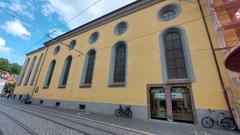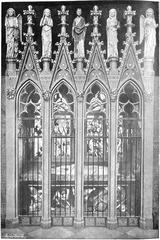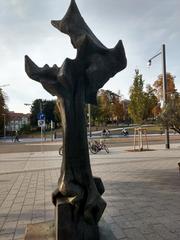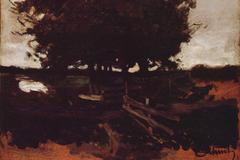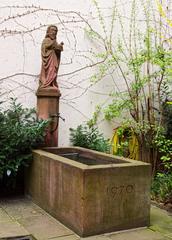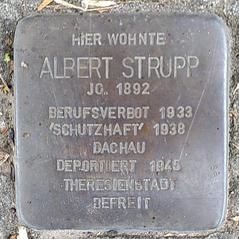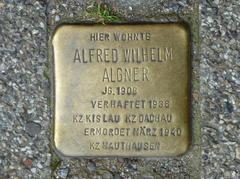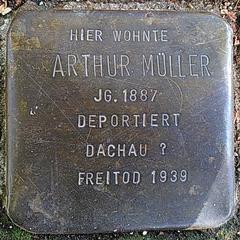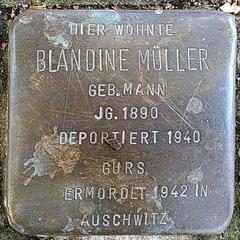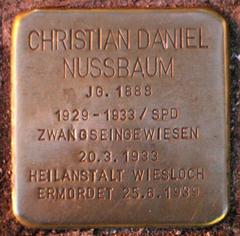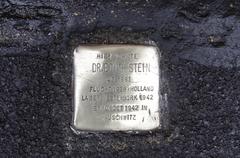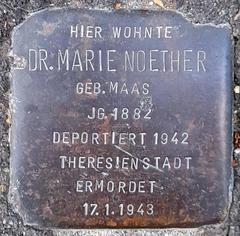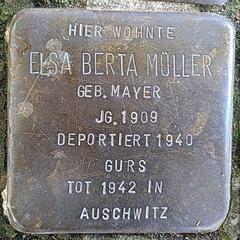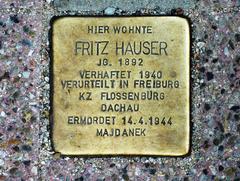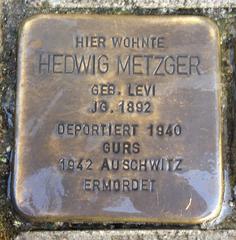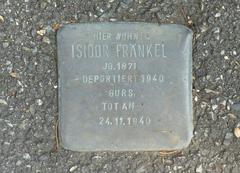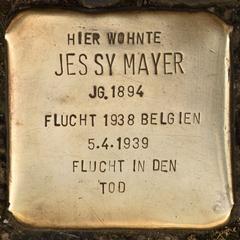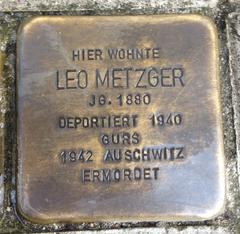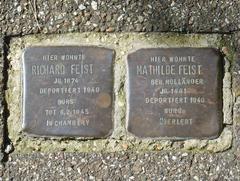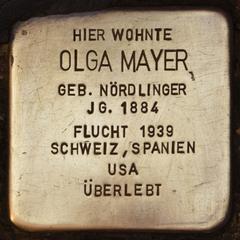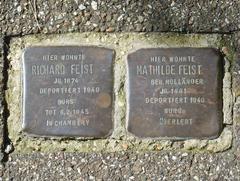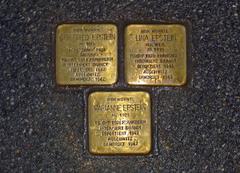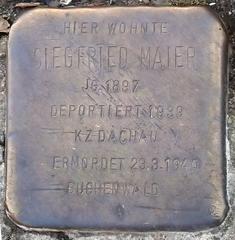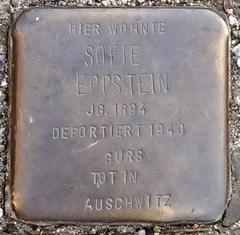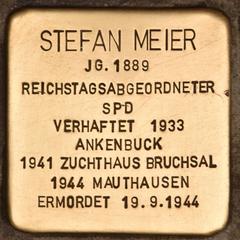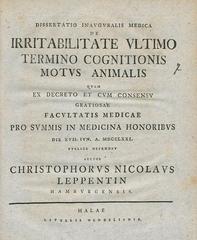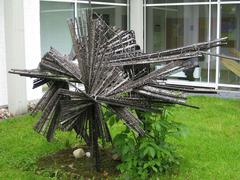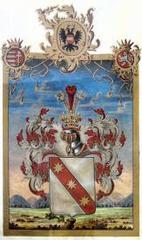Archivum Rhenanum Visiting Hours, Tickets, and Freiburg Historical Sites Guide
Date: 15/06/2025
Introduction: Archivum Rhenanum and Its Historical Significance
Archivum Rhenanum is a pioneering cross-border archival initiative centered in Freiburg im Breisgau, offering unprecedented access to the shared heritage of the Upper Rhine region, which spans parts of Germany, France, Switzerland, and Austria. Rather than functioning solely as a physical archive, Archivum Rhenanum unites a wealth of medieval manuscripts, municipal records, and unique historical documents through a bilingual (German and French) digital portal. This collaborative project virtually reunites sources dispersed by centuries of political and territorial change, bridging gaps in the region’s historical record and encouraging both academic and public engagement (Archivum Rhenanum Digital Portal; Stadtarchiv Freiburg; Europe for Visitors).
Archivum Rhenanum’s innovative approach exemplifies international cooperation in cultural preservation, offering multilingual resources, educational programming, and community outreach. Whether you’re a historian, genealogist, or traveler, this comprehensive guide details visiting hours, ticket policies, accessibility, and travel tips for both the digital portal and its key partner, the Stadtarchiv Freiburg.
Table of Contents
- Introduction: Discover the Upper Rhine’s Shared Heritage
- Origins and Development of Archivum Rhenanum
- The Project’s Collaborative Network
- Goals and Methodology: Digitizing the Past
- Visiting Information: Freiburg and Partner Archives
- Cultural and Academic Significance
- Visual Highlights
- Frequently Asked Questions (FAQ)
- Internal and External Links
- Conclusion: Engage with Upper Rhine Living History
1. Discover the Upper Rhine’s Shared Heritage
Archivum Rhenanum’s digital platform and physical archive partnerships make centuries of Upper Rhine history accessible to a global audience. Freiburg, with its vibrant medieval past, is at the heart of this initiative. Through digitized documents, contextual resources, and in-person visits, Archivum Rhenanum invites the public to explore the region’s complex legacy.
2. Origins and Development
Archivum Rhenanum was established to address the fragmentation of historical sources caused by shifting borders and administrative changes. Key documents relevant to the Upper Rhine were scattered among archives in Baden-Württemberg, Rhineland-Palatinate, Alsace, Switzerland, and Austria. By virtually reuniting these collections, the project restores a holistic view of the region’s past (archives.hypotheses.org).
3. Collaborative Network
Launched as an Interreg IVa project in 2013 and completed in 2015, Archivum Rhenanum was funded by the European Union’s ERDF and involved a large network of regional partners, including:
- Archives départementales du Haut-Rhin (Colmar)
- Archives départementales du Bas-Rhin (Strasbourg)
- Landesarchiv Baden-Württemberg – Generallandesarchiv Karlsruhe
- Landesarchiv Speyer
- Bistumsarchiv Speyer
- Stadtarchiv Freiburg
- Stadtarchiv Speyer
Over 20 additional institutions, universities, and societies from Baden, Alsace, the Palatinate, Switzerland, and Austria contributed to the project (ag-regionalportale.de).
4. Goals and Methodology
The primary aim was to create an accessible, bilingual digital portal as a “collective memory” for the Upper Rhine (en.wikipedia.org). Key objectives included:
- Digitizing and cataloging medieval and early modern documents
- Providing expert and lay commentary for context
- Overcoming linguistic and national barriers
- Fostering cross-border exchange through interactive features and educational content (archives-fr.hypotheses.org)
The portal provides thematic guides, scholarly essays, and educational tools for diverse audiences (archives.hypotheses.org).
5. Visiting Archivum Rhenanum and Partner Archives
Freiburg Archives: Visiting Hours and Tickets
- Stadtarchiv Freiburg: Open Tuesday to Friday, 9:00 AM–5:00 PM; Saturday, 10:00 AM–1:00 PM; closed Sundays and Mondays (official hours). Entry is free, though appointments are recommended for research.
- Generallandesarchiv Karlsruhe: Open Monday to Friday, 8:30 AM–4:30 PM; registration in advance required.
Accessibility and Travel Tips
- Central locations, easy access by public transit, and facilities for visitors with mobility needs. Contact ahead for specific accommodations.
Nearby Historical Sites and Events
- Notable sites include the Freiburg Minster, Historisches Kaufhaus, Augustinermuseum, and the Old Town’s medieval streets (Travelita Blog; Germany Footsteps).
- Annual historical events and workshops are frequently held; check partner websites for schedules.
Guided Tours and Photography
- Guided tours, workshops, and educational programs are available by prior arrangement. Photography is permitted in public areas and exhibitions; restrictions may apply in reading rooms.
6. Cultural and Academic Significance
Archivum Rhenanum is a cornerstone for cross-border cultural dialogue, allowing visitors to engage with documents in German, French, and Latin. The archive’s holdings illuminate the evolution of governance, law, migration, and religious life, underscoring the Upper Rhine’s role as a crucible of European identity (en.wikipedia.org).
7. Visual Highlights
- Images: Digitized medieval manuscripts, illuminated charters, and photographs of the Stadtarchiv Freiburg’s facilities.
- Virtual Exhibits: Online galleries and virtual tours are accessible via the digital portal.
8. Frequently Asked Questions (FAQ)
Q: How can I access the Archivum Rhenanum digital portal?
A: The portal is open-access and bilingual, available at archives.hypotheses.org.
Q: Are there entrance fees?
A: Most partner archives, including Stadtarchiv Freiburg, offer free admission. Some events or services may have fees.
Q: Are resources available in English?
A: The portal is primarily in German and French, but select materials and tours are offered in English.
Q: Can I book a tour?
A: Yes, guided tours must be booked in advance. Contact the archive to arrange your visit.
Q: Is the archive accessible for visitors with disabilities?
A: Yes, the Stadtarchiv Freiburg is wheelchair accessible.
9. Internal and External Links
- Archivum Rhenanum Digital Portal
- Stadtarchiv Freiburg
- Archives départementales du Haut-Rhin
- Travelita Blog
- Europe for Visitors
10. Conclusion: Engage with Upper Rhine Living History
Archivum Rhenanum exemplifies the fusion of digital innovation and traditional archival research, providing free, accessible resources that illuminate the intertwined histories of the Upper Rhine. Visitors to Freiburg can not only explore the past through physical documents and exhibitions but also deepen their experience via the project’s comprehensive digital offerings. Discover the stories that shaped this dynamic region and take part in ongoing cultural exchange by engaging with Archivum Rhenanum both online and in person.
Additional Resources and Practical Visitor Information
- Physical Location: Archivum Rhenanum’s primary partner, Stadtarchiv Freiburg, is centrally located and easily reached from the main train station and city center (Travelita Blog).
- Admission: Free for all visitors; fees may apply for reproductions, workshops, or special exhibits.
- Facilities: Multilingual staff, lockers, reading rooms, and digital access terminals are available. The archive is barrier-free.
- Nearby Amenities: Dining options and accommodations are plentiful in Freiburg’s Old Town. The Münstermarkt and local breweries offer regional specialties (Travelita Blog).
- For Researchers and Students: Workshops, seminars, and educational resources are regularly offered; see the digital portal for updates.
References
- Archivum Rhenanum Digital Portal
- Stadtarchiv Freiburg
- Official Visiting Information
- Travelita Blog
- Europe for Visitors: Freiburg History
Plan your visit to Archivum Rhenanum and immerse yourself in the rich tapestry of Upper Rhine history. For the most up-to-date information, consult the official websites and related tourism resources. Download the Audiala app for guided audio tours, and follow Archivum Rhenanum on social media for news and events.
